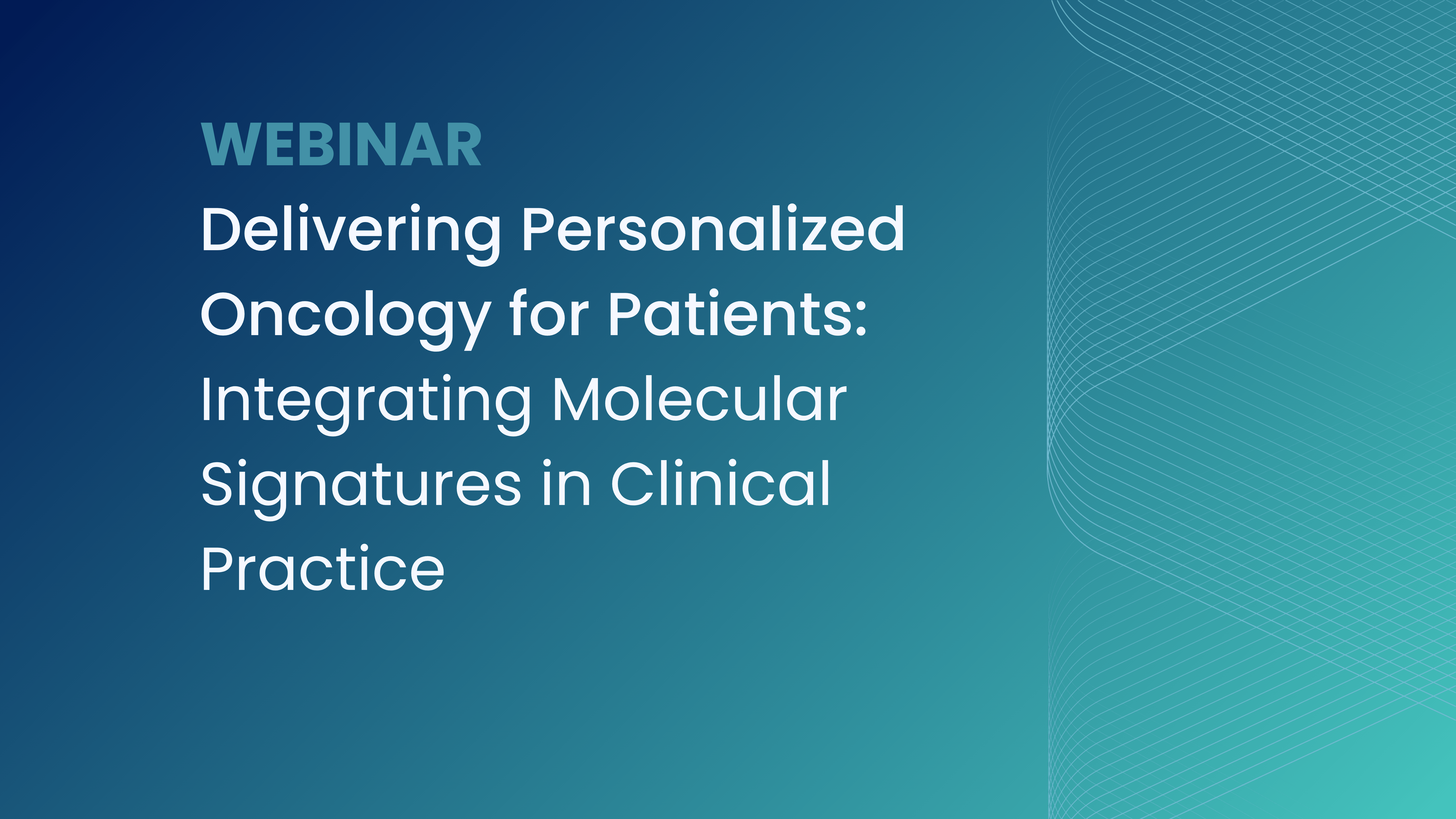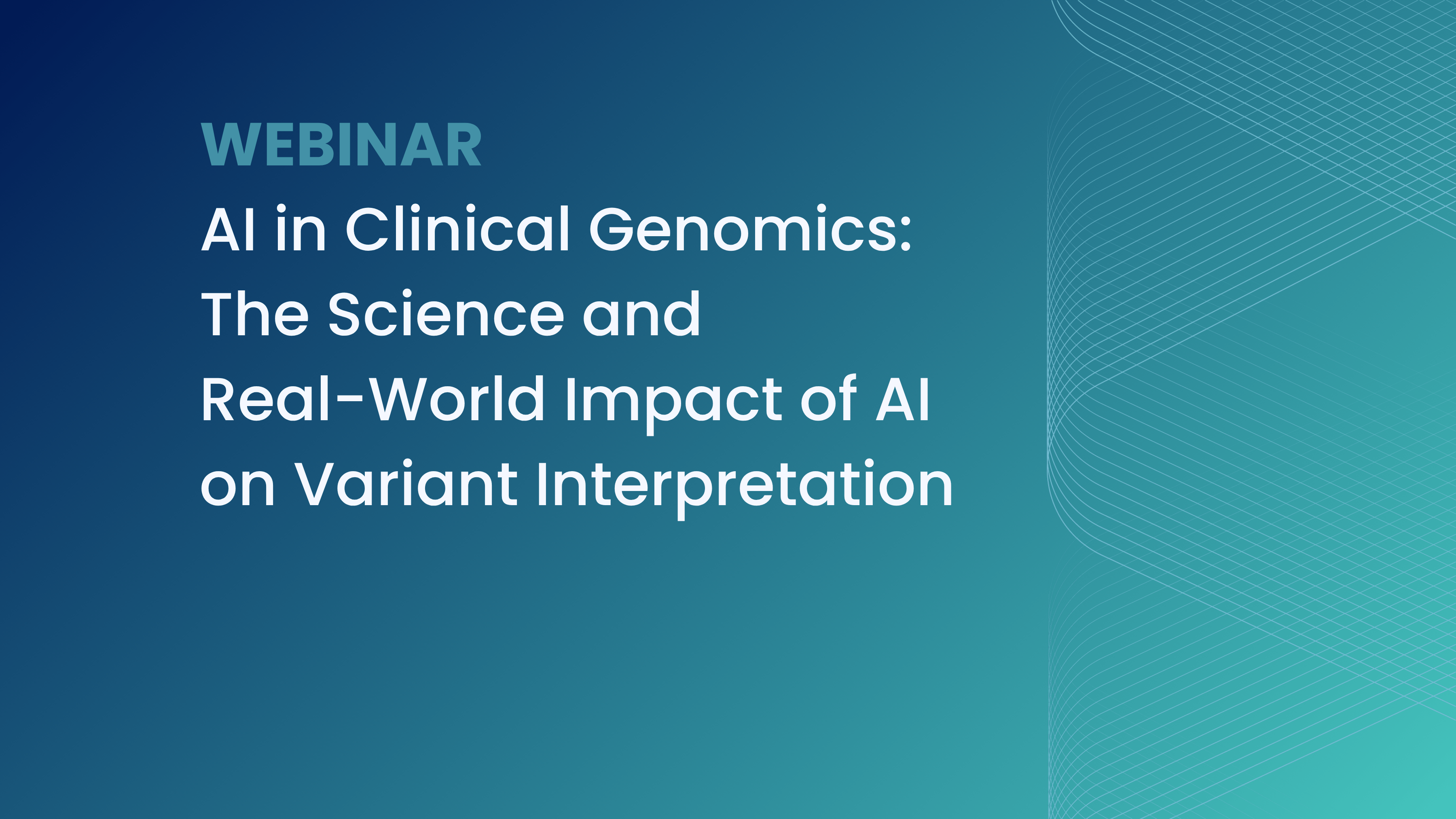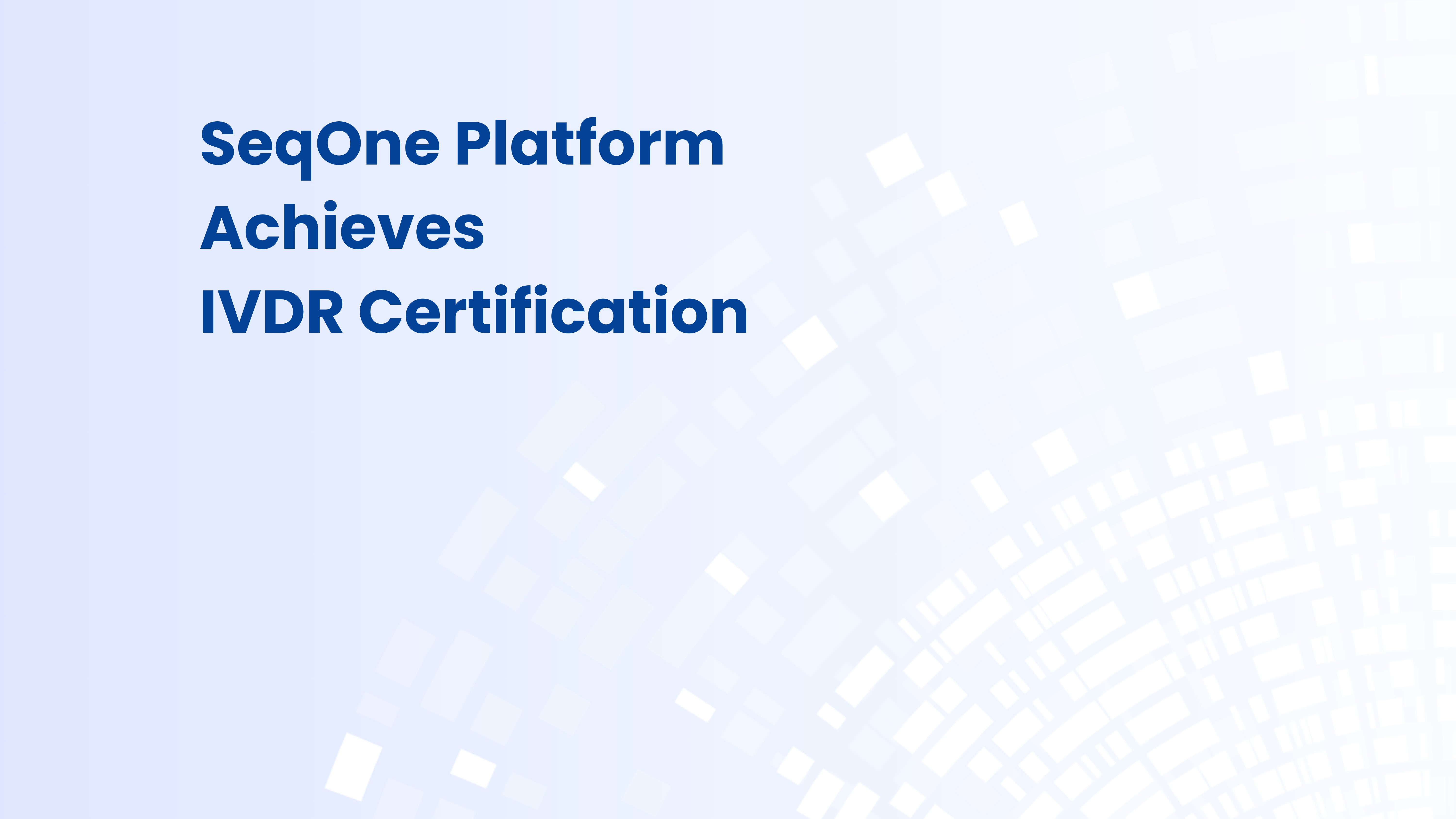With 20,000 to 50,000 variants identified per patient in Exome/Genome Sequencing, the task of identifying clinically relevant genetic alterations is daunting. Even after filtering, hundreds of variants require an expert interpretation, a process that can take several hours per case. This time-consuming task creates significant challenges for Human Genetic laboratories striving to maintain acceptable turnaround times and adequate staffing of specialized personnel.
SeqOne’s DiagAI addresses this challenge head-on, offering a solution that respects the crucial role of human expertise while leveraging the power of AI.
Introducing the DiagAI Score: A New Standard in Variant Ranking
The newly available DiagAI Score, a sophisticated metric ranging from 0 to 100 indicates the likelihood of a variant being disease-causing.
Currently available for Germline analysis, this score allows for an AI-based ranking of variants, providing users with a clear, numerical assessment of each variant’s potential clinical significance.
The score combines multiple features including pathogenicity, phenotype relevance, inheritance & quality criterias.
At the core of the DiagAI Score are two groundbreaking components: the Universal Pathogenicity Predictor (UP²) and PhenoGenius. These innovative explainable machine learning models work in tandem to provide a comprehensive assessment of each variant’s potential clinical significance.
UP² (Universal Pathogenicity Predictor): Decoding Variant Impact
The UP² is a state-of-the-art machine learning model designed to predict the pathogenicity of genetic variants with excellent accuracy. Trained on over 2.5 million variants from ClinVar, the model incorporates 72 distinct features for each variant. UP² predicts ACMG variant classifications for known and novel variants of all types with 97% accuracy when compared to ClinVar annotations.
PhenoGenius: Bridging Genotype and Phenotype
PhenoGenius represents a paradigm shift in how phenotypic information (HPO) is integrated into variant interpretation. By leveraging the associations between genes and phenotypes reported in the literature, PhenoGenius ranks genes based on a provided list of symptoms outperforming alternatives by 42%.
This innovative phenotype matching scoring system goes beyond simple gene-phenotype associations to model complex symptom interactions.
Inheritance, Quality and PanelApp rules
DiagAI Score leverages a rule-based system, meticulously designed in collaboration with genetic experts, to prioritize variants based on inheritance patterns in both solo cases and family studies.
This expert system considers gene-specific inheritance modes, variant zygosity, familial transmission patterns, and gene relevance in PanelApp. Importantly, these rules reflect “human expert thinking,” and their weights are the result of extensive training on diagnostic cohorts, optimizing the model’s accuracy against ground truth. In addition, quality factors are considered when calculating final rules-based points contribution to the DiagAI Score.
This approach ensures that DiagAI’s variant prioritization Score is not only theoretically sound but also finely tuned to real-world clinical scenarios, enhancing its effectiveness in diverse genetic testing contexts.
DiagAI ShortList & SmartPick Flags
DiagAI also includes two important flags designed to further improve diagnostic time saving.
DiagAI ShortList generates a concise list of potential causal variants (averaging <18 variants for WES) with 96% accuracy. In practical terms, this means that in 96% of cases, ES/WGS interpreters can toggle a simple filter on the SeqOne platform to focus on a manageable list of fewer than 20 variants and identify the disease-causing mutation.
DiagAI SmartPick: With a remarkable 90% specificity, this feature instantly suggests the most likely disease-causing variants for the interpreter to assess and confirm.
This high-precision tool, available for solo cases with HPO or family studies, significantly reduces the time required for initial variant screening providing a highly specific suggestion in more than 57% of diagnostic cases.
DiagAI Score Ranking Performance Validation Study
In a 1012 singleton exomes diagnostic nephrolocy cases real-world cohort, the DiagAI Score demonstrated exceptional ranking performance, significantly outperforming Exomiser v13 and AI Marrvel Lite.
Coming Soon… Explainable AI: Transparency at Your Fingertips
Addressing the long-standing concern of AI model opacity in medical applications, SeqOne has pioneered a fully transparent approach with DiagAI. From its inception, we’ve designed and trained DiagAI with explainability at its core, ensuring that its decision-making process is not just powerful, but also comprehensible to human experts. In an upcoming release, we will unveil the DiagAI Score Detail Page bringing unprecedented transparency to AI assisted to variant interpretation.
Further information and a preview of DiagAI Score explanaibility is available in our WhitePaper.
AI as an Assistant, Experts at the Wheel
SeqOne firmly believes that AI should augment, not replace, human expertise. The enhanced DiagAI suite is designed with this philosophy in mind, positioning AI as a powerful assistant while ensuring that expert biologists maintain control over the diagnostic process.
How DiagAI supports expert-driven analysis:
- Provides rapid initial variant prioritization, allowing experts to focus their time more efficiently
- Offers AI-generated insights as a ‘second opinion’ to complement human analysis
- Allows for easy override of AI suggestions, ensuring the final decision always rests with the expert
Looking Ahead: The Future of AI-Assisted Genomics
As SeqOne continues to refine DiagAI, the focus remains on enhancing the synergy between AI capabilities and human expertise.
Future developments may include:
- Evolving DiagAI models including in somatic use cases and additional variant types (SV, CNV, STRs).
- Scientific Collaborations to further validate DiagAI on additional cohorts.
- Novel features enabling natural language interaction with DiagAI as a CoPilot
We look forward to potential collaborations and further work to keep pushing the boundaries of what’s possible in genomic analysis, the partnership between human expertise and AI assistance promises to unlock new levels of precision in personalized medicine.
Ready to experience the power of DiagAI in your molecular lab?
Whether you’re starting from fastQ files or VCFs, we’re offering a unique opportunity to optimize your workflow:
- Free Testing: See DiagAI in action with your own data
- Complimentary Training: Expert-led sessions to maximize your DiagAI proficiency
Don’t miss this chance to transform your variant interpretation process. Contact us today to schedule your free DiagAI demonstration and take the first step towards faster, more accurate genomic analysis.
About SeqOne
SeqOne is a leading European provider of AI-powered software for next-generation sequencing (NGS) data analysis in oncology and rare diseases. Its cloud-based platform transforms complex genomic data into fast, precise, and actionable insights, supporting molecular labs in delivering life-saving diagnoses and treatments. The SeqOne Platform is a CE-IVD Class C certified under IVDR in vitro diagnostic medical device. Driven by the vision of personalized medicine for every patient, everywhere, SeqOne is scaling the future of genomic medicine—one lab at a time.
For more information, visit seqone.com.






















